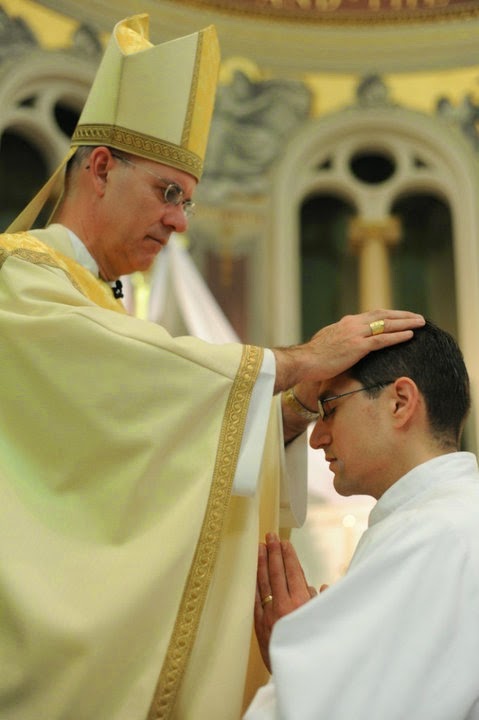Reflecting upon my assignment, I am reminded of Saint Paul’s words in Philippians 3:10-11, “…that I may know [Christ] and the power of his resurrection, and may share his sufferings, becoming like him in his death, that if possible I may attain the resurrection from the dead.” These verses highlight the desire I had for my visits at Holy Spirit Hospital to be more than anecdotal and my hope that I would come to know Christ through the patients and that they might also know Christ through me. Although I cannot speak for the patients, I can say that I saw the mystery of Christ’s union with humanity come to light in a way that I had not anticipated.
To be honest, many visits were brief and somewhat awkward. Beginning a visit could be difficult and I first had to fight off the urge to cut short the possibility of ministering simply because of my feelings or negative first impressions. Then I had to resist the urge to manufacture something meaningful of an encounter in order to settle my own conscience. Pushing through my personal inhibitions, I discovered that my most successful encounters were sometimes those which were the most difficult to begin and, each time I went, I felt called to remain with at least one or two people in particular.
Over the weeks, I was moved to meditate on the meaning of a human life, the significance of a human person as a historical/temporal being, and how s/he is formed by experiences, especially the one of which I had become a part at Holy Spirit. As I entered a room, I saw myself entering a person’s history and pondered the depth of the notion and the potential each entrance contained. If permitted, it would be my privilege to enter into the experiences of another, adding to the totality of who s/he was and what God intended for him/her.
But, who was I and what did I really have to offer anybody? I had no cure and no particular agenda. I knew nothing about the person except his/her name and that s/he was a patient at HSH. Thus impoverished, I could only offer myself and my presence and I developed a sense of openness and receptivity that paid tribute to each patient’s dignity as a person created in the image of God. I saw that patients were susceptible to losing their sense of dignity because of their sufferings. After all, how dignified can you feel with a tube up your nose or in your neck, or when wearing one of those hospital gowns? Nonetheless, I could see some were coming to terms with their sufferings while others had already come to accept them and were bearing them with great grace. In each case, I believe that before me was an encounter with Christ Himself, whether or not it was immediately discernable to me, and that he was not just asking me to offer myself to the person, but to God, and that somehow He was offering Himself to me.
I was especially blessed by the older patients who shared their stories with me, because they were inviting me inside their hearts to share in who they were. In those periods of protracted listening, I received a glimmer of what “becoming like him in his death” might mean and I experienced a type of communion with them as each of us became part of the other’s history, leaving a memory that would not soon be forgotten. While many encounters and experiences in my life may go by almost without another thought, these minutes were long, deep, and substantial.
The most uncomfortable situations were the ones in which the patient was unable to communicate with me. At times like these, words would have been gratuitous and a sympathetic glance followed by a prayer seemed to be appropriate. Such patient visits were always easier if the family was around. Regardless of these encounters, I did not find my assignments too difficult to face or too much to bear, and I ultimately found that the hardest part of being in the pastoral ministry program at Holy Spirit Hospital was leaving.
Tuesday, August 18, 2009
Subscribe to:
Comments (Atom)
